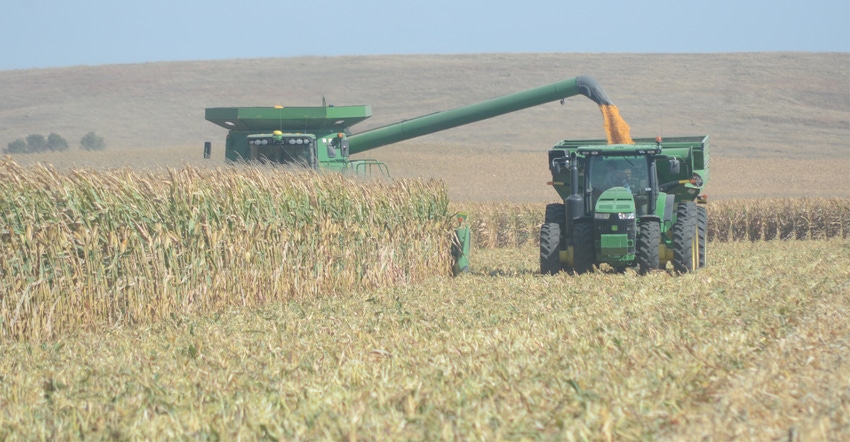August 4, 2020

Agriculture is a risky business. That is nothing new or surprising. But, the amount of risks and challenges agriculture has faced in recent months is seemingly unprecedented. From financial challenges to production and market shocks, to public health scares and policy developments, agriculture has had to respond and adapt to a wide range of issues.
Crop producers already were dealing with market losses from trade conflict when extreme weather hit the region in 2019. Beyond the catastrophic flooding, wet conditions let to several hundred thousand acres of prevented planting in Nebraska in 2019.
Wet conditions were even worse to the north, with millions of acres of prevented plant across the Dakotas. Those wet weather challenges also delayed harvest for the acres that did get planted to the point that some 2019 crops were only harvested in the past few weeks, and additional 2020 prevented plant losses accumulated. And yet, producers in other areas, including parts of Nebraska, are battling drought conditions.
Shock to the system
Of course, crop producers also are dealing with losses because of the COVID-19 pandemic. For grain producers, the losses seemed to come predominantly from the disruptions to trade and economic activity, including effects on travel that hurt the biofuels sector and indirectly the underlying ag commodities.
For many specialty crop and niche producers, the losses also came from the shock to consumer demand and marketing channels, as consumers shifted spending away from restaurants and toward retail grocery for at-home consumption. This shift led to a backlog of farm production geared toward food service outlets even as there were shortages of products packaged for retail markets.
Livestock producers have experienced this shock as well, on top of continuing trade and other challenges. For livestock producers, it wasn’t just the hit to consumer demand and supply chains, but also the disruption to processing capacity as COVID-19 spread through the workforce, particularly in meat processing.
The market disruption led to record price spreads between farm and retail, even greater than the market shock after the beef processing plant fire in Kansas in August 2019.
Helping producers prepare for, adapt to and overcome these challenges is part of the broad educational mission of the Extension Risk Management Education program. The University of Nebraska-Lincoln hosts the North Central ERME Center, one of five risk management education centers around the country competitively funded through USDA’s National Institute of Food and Agriculture.
The center has the responsibility of supporting producer education efforts across the region (from Kansas to North Dakota to Michigan and Ohio and back), to help producers achieve real risk management results and improve farm profitability and business success.
Identify issues, needs
Identifying issues and needs is an important first step to understanding and addressing agricultural risk. Producers at Nebraska Extension and Farm Service Agency farm bill education programs this past winter identified marketing, crop insurance and farm program decisions as key issues for the coming year (not surprising given the focus of the meetings).
But they also identified price levels and costs as key challenges over the long term, recognizing the need to craft risk management strategies not only to manage today’s risks, but also the need to adapt and manage for the long run.
The recent report from USDA’s Agricultural Marketing Service analyzing market disruptions in the beef sector and concerns over price spreads between farm and retail also pointed to the need for improved education and utilization of risk management tools among other recommendations.
The ERME program supports educational efforts on these and other issues to help producers address the broad range of agricultural risks from production to marketing, financial, legal and human risks. Managing success for the overall operation means managing each area of risk successfully in spite of whatever the current environment, economic situation or policy framework is.
Devoting time and effort to risk management, including the education, analysis, and decision-making to implement new and improved practices, is worth the investment.
The fundamental purpose of the ERME program nationally is to support local programs that reach producers with the education they need and demand. Those programs, in turn, help producers gain the knowledge and skills to understand and analyze risks facing their operations and to develop and implement the practices to address them.
The North Central ERME Center has been awarded funds from USDA since 2001 to deliver this support in the region and will be announcing its next round of funding opportunities in September for educators and groups looking to deliver education to producers in the coming year.
For those interested in delivering education and for those interested in the results of 422 funded projects to date, visit the center website at ncerme.org and the national program website at extensionrme.org.
Lubben is an Extension policy specialist at the University of Nebraska-Lincoln.
Read more about:
Covid 19About the Author(s)
You May Also Like






